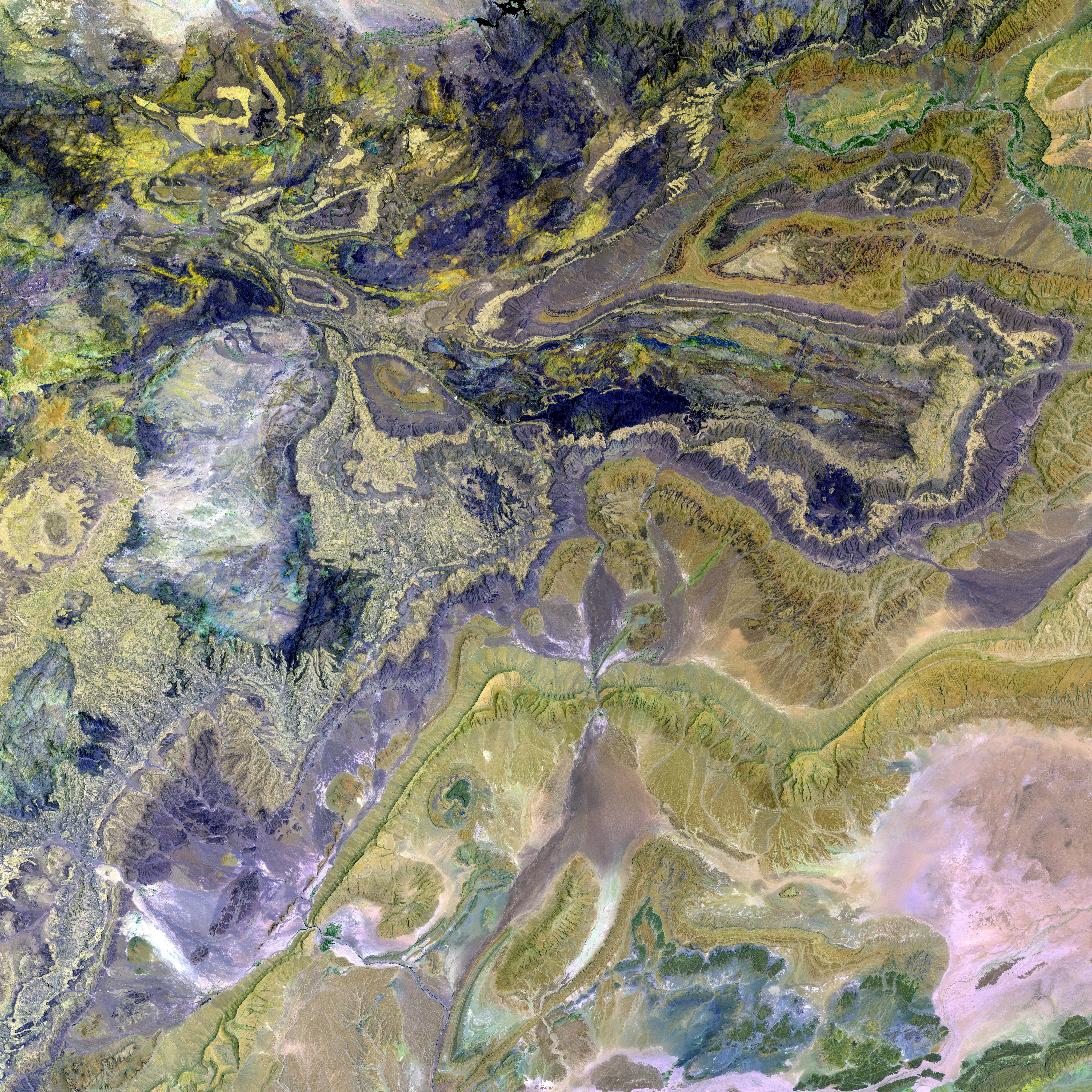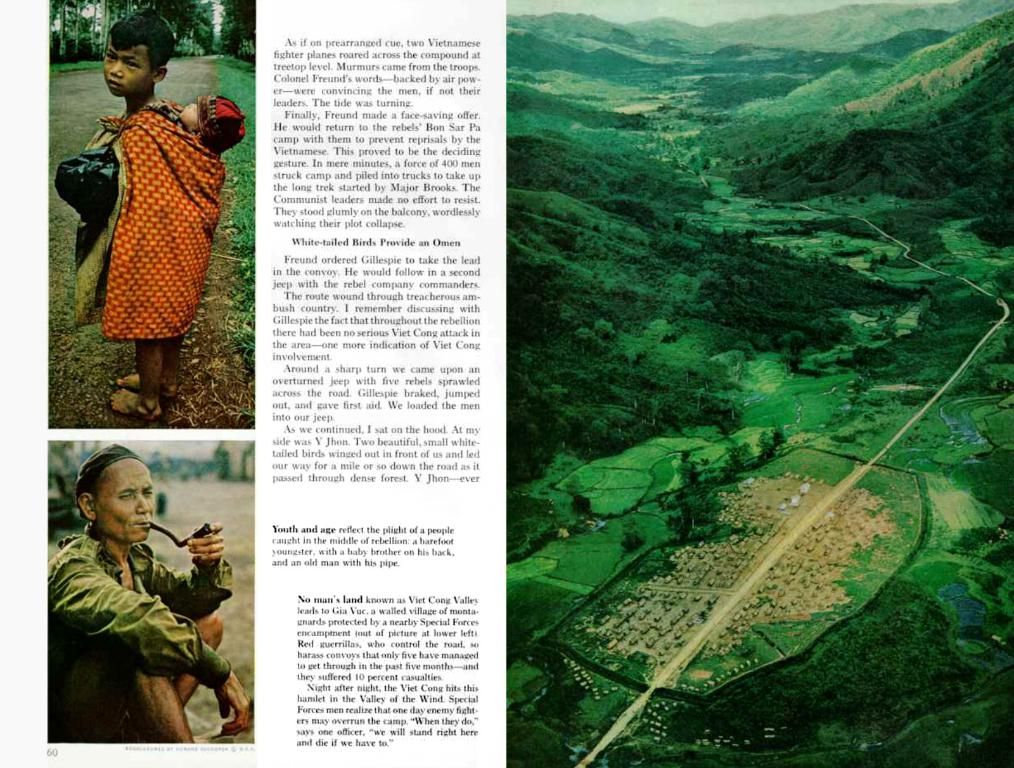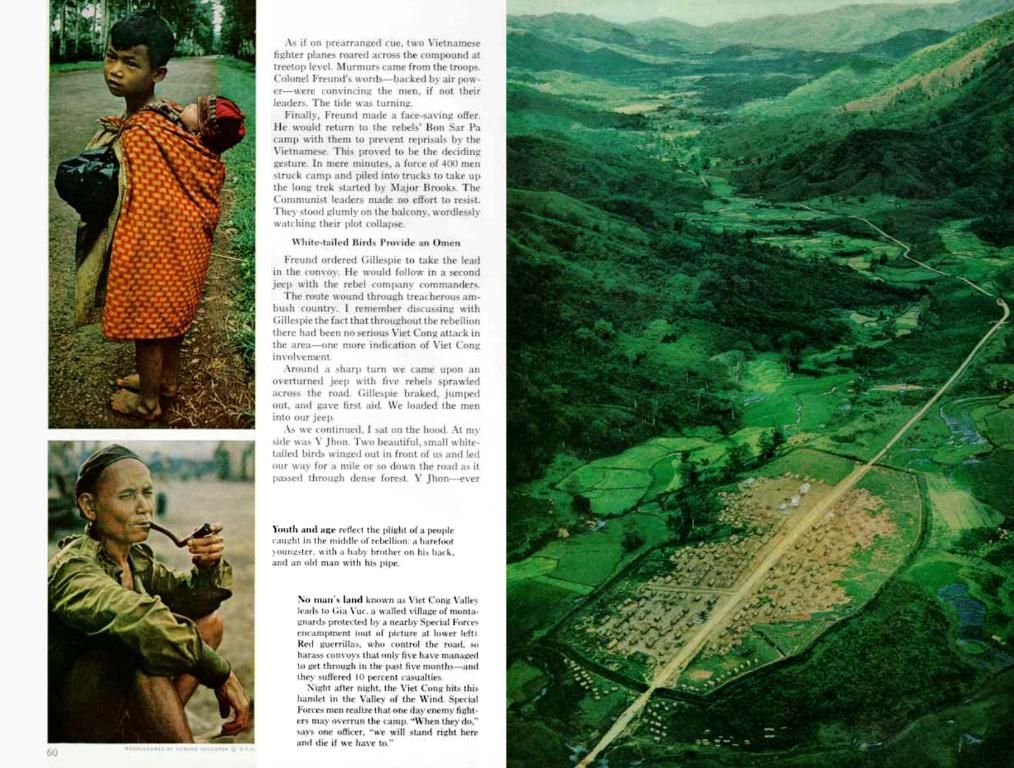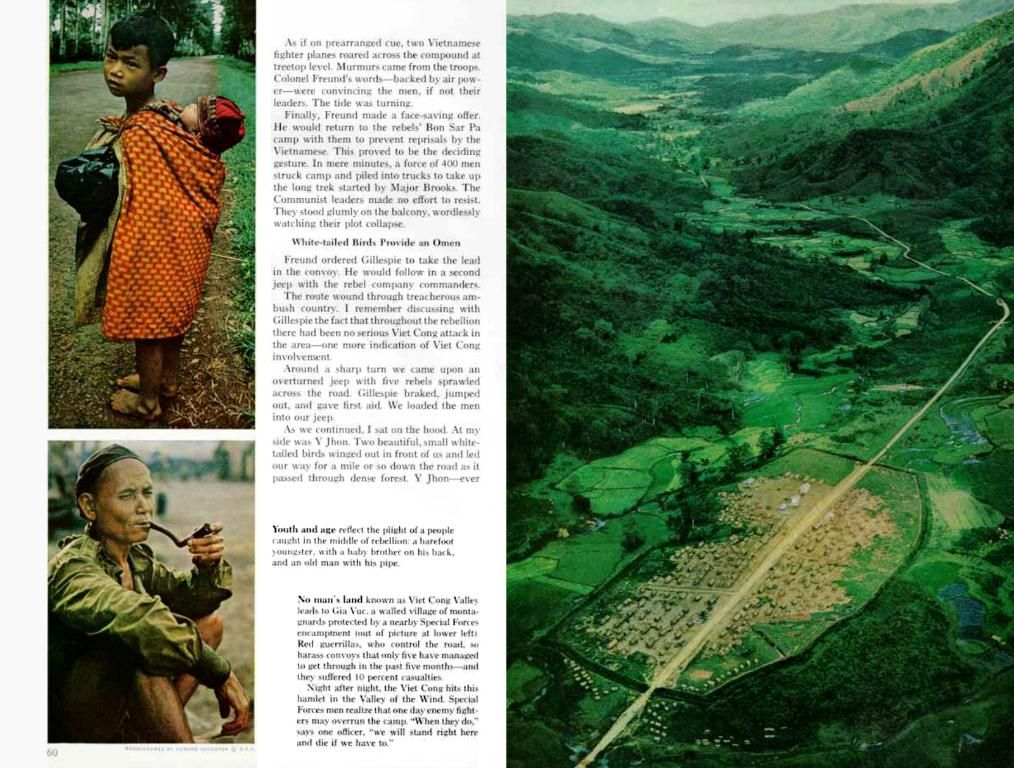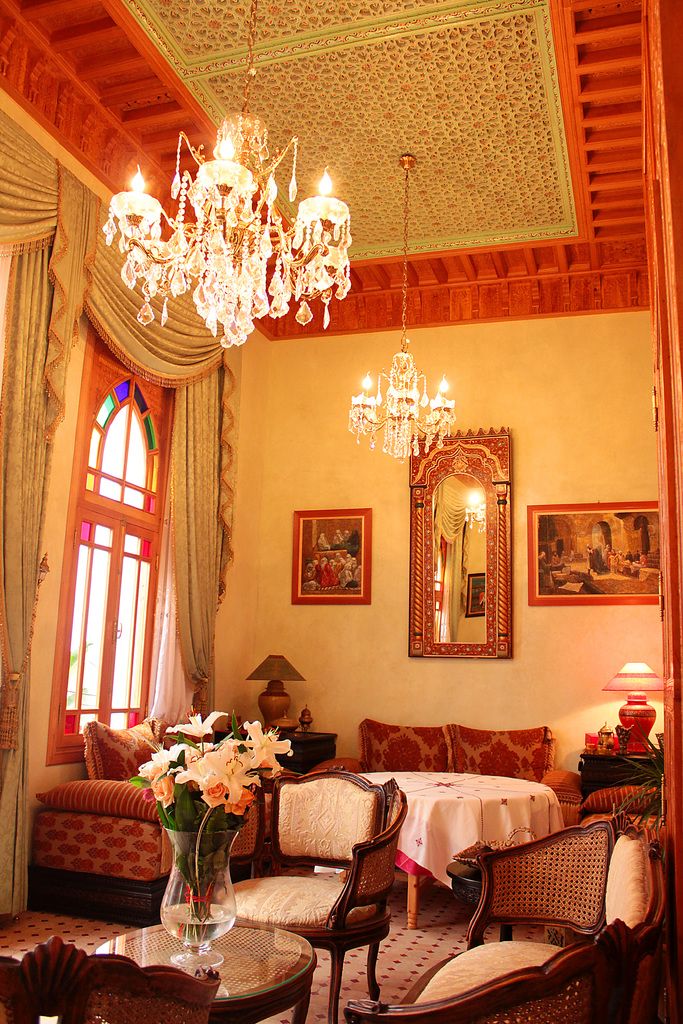Controversial Resettlement: 59 Afrikaners arrive in the US amid Refugee Freeze
Let's dive into the heated debate surrounding the arrival of Afrikaners in the US!
International discourse ignited over the resettlement of Afrikaners in the United States as refugees
In a surprising twist, a charter plane filled with 59 white South Africans touched down near Washington, D.C. on Monday. These weren't your typical vacationers - they were the first Afrikaners, descendants of European colonists, to enter the US as refugees[1].
The warm welcome from senior officials from the Trump administration was hard to miss, as they greeted the newcomers with little American flags[1]. However, the timing of their arrival is controversial, as all other refugee resettlement through the US Refugee Admissions Program is currently on hold[1]. Just days after Donald Trump took office for his second term, he halted the program. But within weeks, an exception was made for Afrikaners, who the White House said are suffering from racial discrimination at home[1].
This decision followed claims by Trump adviser Elon Musk, a South African native, that white farmers are being subjected to genocide and land expropriation[1]. However, the South African government and some prominent Afrikaner groups have strongly denied these accusations[1]. Regrettably, our team was unable to get a response from major Afrikaner groups in South Africa[1].
The Optics of Opportunity
Loren Landau, a migration and development professor at the University of Oxford, believes the resettlement of Afrikaners sends a clear message[1]. "It suggests that the Trump administration is willing to welcome a group historically associated with white supremacy and elitism, while turning its back on vulnerable individuals who truly need assistance," Landau stated[1]. He specifically referred to the apartheid regime that lasted from 1948 to the early 1990s in South Africa[1].
Landau argues that people like those fleeing Sudan's brutal civil war are more deserving of refugee status than Afrikaners[1]. He explains that although Afrikaners may face some level of racial discrimination, they are not in danger of losing their lives or livelihoods simply because of their ethnicity[1].
The Knock-on Effects of US Refugee Policy
Until Trump's executive order in January, the US was the leading resettlement country in the world, typically offering asylum to tens of thousands of refugees each year[1]. However, Trump's decision to accept Afrikaners while rejecting others could have far-reaching implications[1].
Bill Frelick, the director of the Refugee and Migrant Rights Division at Human Rights Watch, suggests that Trump's thinking is driven by political motivations[1]. He points out that this could pave the way for every country to claim, "If the US, the world's richest country, won't take genuine refugees, why should we?"[1]
Thousands in Limbo
Regardless of Trump's motives, the Afrikaners' refugee applications were expedited[1]. However, thousands of refugees who were approved and had travel booked to the US as of 20 January are now in limbo[1]. Even though a court order is in place requiring the Trump administration to grant them entry[1], their futures remain uncertain.
Mevlūde Akay Alp, a senior litigation attorney at the International Refugee Assistance Project (IRAP), explained the situation[1]. "Even though a court order is in place, these people are now stranded in third countries[1]. They had taken significant steps and relied on the fact that they would be traveling very soon to the United States[1]. Many of them sold their belongings, ended the leases on their homes, left their jobs in anticipation[1]. And now they remain unsure whether they will ever be able to come to the US[1]."
The Exception That Proves the Rule
Despite the faster processing for Afrikaners, the US refugee admissions program historically requires individuals to meet specific requirements[1]. These requirements involve significant vetting and screening, a process that typically takes years[1]. However, the rapid processing for the Afrikaners stands in stark contrast to the traditionally lengthy process[1].
Regardless of the controversy, the resettlement of Afrikaners raises significant questions about the US's approach to refugee policy and the potential implications for vulnerable individuals around the world.
Sources: 1. Rory Sullivan (2021). Amid a refugee resettlement freeze, 59 Afrikaners arrived in the US, welcomed by Trump officials, sparking debates over discrimination and refugee policies. [Online], Available: https://www.aljazeera.com/news/2021/3/2/amid-a-refugee-resettlement-freeze-59-afrikaners-arrived-in-the-us-sparking-debates-over-discrimination-and-refugee-policies
Keywords: asylum, South Africa, Donald Trump, United States, refugees
- The books on education-and-self-development and personal-growth, such as 'Mindset' by Carol Dweck and 'Atomic Habits' by James Clear, can aid in fostering a mindset of resilience and adaptability, relevant to the Afrikaners' migration journey.
- The migration of the Afrikaners to the US presents an opportunity for social-media platforms, like Twitter and Facebook, to engage in meaningful discussions about racism, discrimination, and the lived experiences of refugees.
- Movies-and-TV series around education, such as 'The School of Good and Evil' and 'Schooled', can provide entertaining yet educational content for the newly arrived Afrikaner children.
- The ongoing migration controversy makes for compelling news, with stories appearing in general-news outlets and news segments on war-and-conflicts, politics, and crime-and-justice.
- Policy-and-legislation scholars may find this migration event an interesting case study to analyze the shift in US refugee policy under the Trump administration.
- The arrival of Afrikaners has brought a new dimension to entertainment discussions, with debates on whether celebrities like Elon Musk should use their platform to amplify specific causes, such as Afrikaner migration.
- This migration event can serve as a topic for exploring policy-and-legislation issues, online-education, career-development, and the impact on job-search among refugees in pop-culture and sci-fi-and-fantasy novels.
- The migration of Afrikaners has raised questions about the role of car-accidents, fires, and accidents in shaping the narrative of policy-and-legislation, particularly surrounding their potential role in forcing individuals to seek refuge.
- Educational institutions can leverage this controversial event to promote learning, goal-setting, and lifelong-learning among students, encouraging discussions on cultural differences, stereotypes, and the importance of empathy.
- The migration raises questions about the role of skills-training programs in preparing refugees for their new environments and opportunities.
- The debate on the Afrikaner migration can be utilized in sports analysis, with comparisons drawn between the personal growth experiences of sports athletes and the Afrikaner refugees.
- Careers in weather forecasting and auto-racing could gain attention as potential safety concerns arise due to the increased focus on the Afrikaner migration.
- Mixed-martial-arts competitions serve as platforms to explore concepts of resilience, perseverance, and opportunity relevant to the Afrikaner migration narrative.
- The arrival of Afrikaners in the US presents an opportunity for productivity enthusiasts to discuss strategies for navigating unfamiliar territories and adapting to new environments.
- The controversy surrounding the Afrikaner migration can be a topic for discussion in entertainment podcasts focused on movies-and-TV, celebrity gossip, and pop-culture.
- Sports enthusiasts, especially football fans, can weigh in on the impact of the Afrikaner migration on the Premier League, Champions League, NFL, soccer, WNBA, baseball, hockey, and golf, considering potential worries about the racial and ethnic balance of teams.
- Sports betting aficionados might see the migration as a potential factor influencing the outcomes of European leagues, NBA, Masters, Grand Prix, horse-racing events, and various sports competitions.
- Prominent news channels can use the weather reports to delve into the impact of migration on dispersal patterns and weather forecasting.
- The migration event can provide material for sports analysts on the Premier League, American football, MLB, NHL, NBA, tennis, and various sports events to discuss the development and evolving nature of team dynamics and strategies.
- The controversy around the Afrikaner migration can inspire pop-culture artists to create music, visual arts, and literature addressing the themes of displacement, identity, and cultural adaptation.
- The rapid processing of Afrikaners' refugee applications sparked discussions on the implications of flexible policy-and-legislation for different groups and regions in the context of learning, goal-setting, and lifelong-learning.
- Sports fans can engage in debates on the potential effects of the migration on fan communities and their support of various teams, considering the increased representation of Afrikaner athletes in popular sports events.
- Commentators and scholars might discuss the long-term impact of the Afrikaner migration on sports rivalries and the development of sports policies focused on inclusivity and diversity.
- The unusual nature of the Afrikaner migration could also pique the interest of investigative journalists seeking to probe further into the policy-and-legislation decisions made during Trump's administration.
- The migration event can serve as a case study for sports psychologists exploring the concept of personal growth and mental resilience among sports athletes facing adversity and change.
- Educational institutions can integrate the migration event into interdisciplinary curriculum on topics such as social-media, war-and-conflicts, politics, and crime-and-justice, encouraging thoughtful discourse and fostering a global perspective.
- News channels can use this event to present weather-forecasting segments that examine the impact of migration on population patterns and climate change.
- The controversy surrounding the Afrikaner migration can become a focal point for creating intriguing discussions on the role of media and their responsibility in disseminating accurate information.
- The Afrikaner migration can inspire sports fans and enthusiasts to use platforms like social media to promote inclusivity, empathy, and mutual understanding across different cultural backgrounds and ethnicities.
